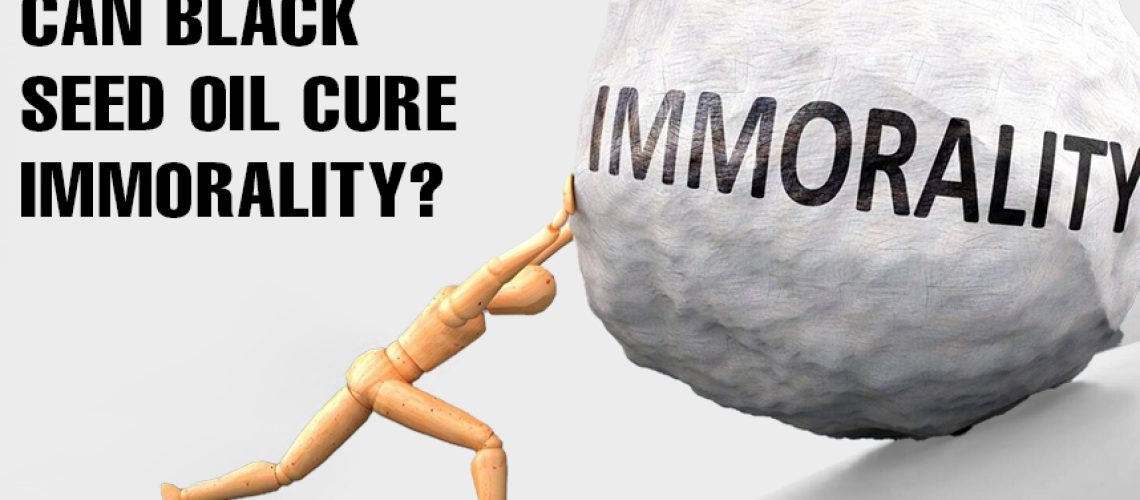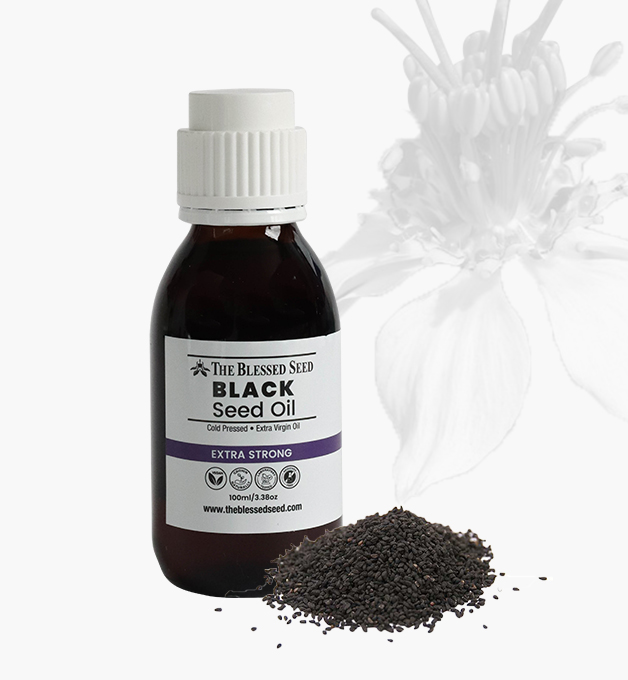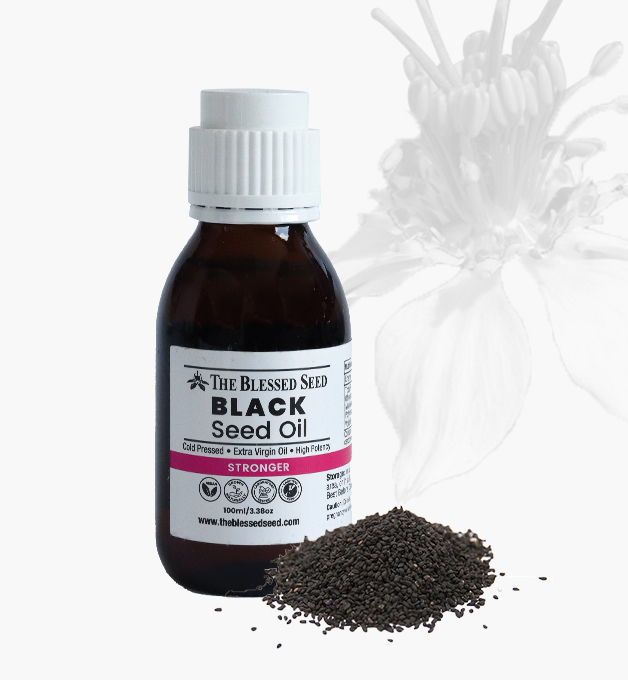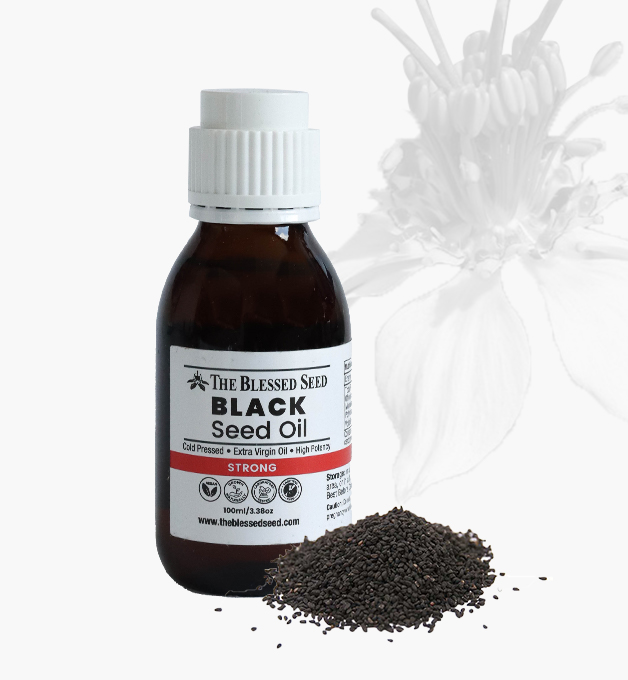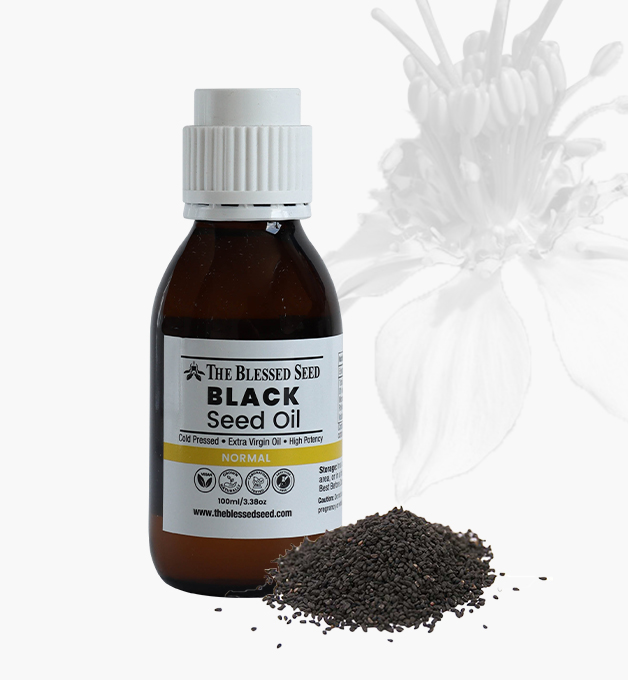Most people behave in a moral fashion. They do not steal. They do not lie or take advantage of other people. Nor do they engage in shady business dealings. And they do not even think of doing any of these things. It does not cross their minds to do so.
Unfortunately, this is not true of everyone. You get a certain portion of people with no issue engaging in underhanded activities. What is more, their actions do not have any effect on their conscience.
So, what is it about these socially immoral people that makes them different from the rest of society?
Evidence suggests that the difference between moral and immoral people lies in the brain. Due to its various properties, Black Seed Oil may just prove effective in doing something about this type of behaviour.
What Is Immorality
Immorality refers to behaviour regarded by most people as wrong. It is evil and even sinful in nature. This type of behaviour includes stealing, cheating, and lying. It is outside the norms and standards of society. And just about every religion on earth has the same negative views on this type of behaviour.
What Causes Immoral Behaviour?
Immoral behaviour could have many causes1. They include the following:
- Social Influences – Where individuals may decide to follow a certain social group that propagates an anti-social or immoral identity
- Greed – Immoral people often compare themselves to others and desire what they have while not willing to work for it
- Egocentrism – These people can focus only on themselves, often having an inflated opinion of themselves while seeing others as inferior
- Self-justification – Immoral people often see nothing wrong in their actions, justifying them with ideas like it is their right or if they can get away with it, they have done nothing wrong
- Self-view – These people often have an inflated view of their own importance and believe that what applies to others does not apply to them
Now, if one looks at these so-called ‘causes’ of immoral behaviour, we have to notice one common thread – they all have to do with choices. In other words, a certain brain behaviour that does not see the bad about any of these behaviours or decisions. You choose to follow a certain social group. Greed is also a choice. Thinking only of yourself and justifying your behaviour are also choices, as is the view you choose to have of yourself. And the seat of all choices lies in the brain.
Interestingly, science indicates that moral and immoral behaviour starts with how the brain functions2.
Morality/Immorality Starts In The Brain
Various areas of the brain work together to determine your actions.
- Ventromedial prefrontal cortex – engages in moral judgement
- Orbitofrontal cortex – has to do with feelings of reward and punishment
- Anterior cingulate cortex – helps detect mistakes
- Inferior parietal region – has to do with cognitive control and memory
- Temporo-parietal junction – plays a role in moral belief and intuition
- Superior temporal sulcu – sight of social perception
- Anterior/middle temporal gyrus – related to moral judgement
- Posterior cingulate cortex – involved with memory processing and self-awareness
- Insular cortex – engaged in moral tasks like feelings of disgust at certain actions
- Amygdala – involved in making moral judgements
- Thalamus – the seat of empathy
Morality itself depends on these, and other brain structures, working together to make certain judgements and determine certain actions. If one or more of these structures become compromised, or the chemical messengers that link these structures no longer work as they should, your ability to make sound, moral judgements and to determine corresponding, moral actions becomes impaired. In other words, the likelihood of exhibiting immoral behaviour increases.
Black Seed Oil And Immorality
Black seeds, said by the Prophet Mohammed to cure every disease but death, are also mentioned in the Christian Bible. In other words, people of antiquity knew that black seeds, i.e., the seeds of the Nigella sativa plant, have many beneficial properties. More recently, modern science has confirmed many of the claims made about the plant’s various health benefits.
But can black seeds affect immorality? Can they help change the brain structure impairments that cause people to act in an immoral manner?
While no scientific papers show the seed’s ability to do so, it would be well worth our while to look at what science says about the seed’s effect on the brain.
The Benefits Of Nigella Sativa Seeds And Black Seed Oil
A review of the potential benefits of Nigella sativa3 has much to say about its potential health benefits. The researched benefits include its anticancer, analgesic, anti-inflammatory, antioxidant, antimicrobial, antidiabetic, spasmolytic, hepato-protective, and immunomodulatory properties. Yet these are not all the beneficial properties studied and acknowledged. There are too many to mention.
But what does this have to do with brain function, you might ask? The answer is – everything.
You see, one of the most important aspects of proper brain function is the action of the chemical messengers, called neurotransmitters, in the brain. Furthermore, the brain makes use of these via neurons that connect the different areas of the brain.
Stress of any kind can cause issues with how these neurons and chemical messengers interact. This is because stress causes inflammation. The strong antioxidant and anti-inflammatory properties of Nigella sativa can actively fight inflammation while fighting free radicals. Stress is not only a psychological issue like dealing with a challenging work situation, for example. Stress can also have physiological causes like an injury sustained during a car accident or a bad fall. Other causes of stress on the brain and body include exposure to chemicals, or even due to allergies, amongst many others.
Research indicates that Nigella sativa has a beneficial effect on brain activity because of its actions on the nervous system4. Some of the benefits in the brain include the following:
- Certain components in Nigella sativa may help the areas of the brain dealing with anxiety and depression
- May address harm to the brain or peripheral nervous system resulting from exposure to toxic substances
- Promotes better learning and helps to address areas of the brain dealing with memory if impairments exist
- May help address the degeneration of neurons in the brain
Please note that the benefits listed do have a connection with the various parts of the brain already mentioned.
In Closing
While no studies have yet been conducted on the ability of black seeds to directly affect immorality, it is important to note that the diverse benefits for brain health exhibited by the seed do encompass the different areas that have to do with morality. This may suggest that black seeds may very well have a beneficial effect when it comes to dealing with immorality.
References:
- https://pdfs.semanticscholar.org/74c1/893424e579d23fd5d54b79ebbf587e0c6e0a.pdf
- Pascual, Leo et al. “How does morality work in the brain? A functional and structural perspective of moral behaviour.” Frontiers in integrative neuroscience vol. 7 65. 12 Sep. 2013, doi:10.3389/fnint.2013.00065
- Ahmad, Aftab et al. “A review on therapeutic potential of Nigella sativa: A miracle herb.” Asian Pacific journal of tropical biomedicine vol. 3,5 (2013): 337-52. doi:10.1016/S2221-1691(13)60075-1
- Beheshti, Farimah et al. “Neuropharmacological effects of Nigella sativa.” Avicenna journal of phytomedicine vol. 6,1 (2016): 104-16.
